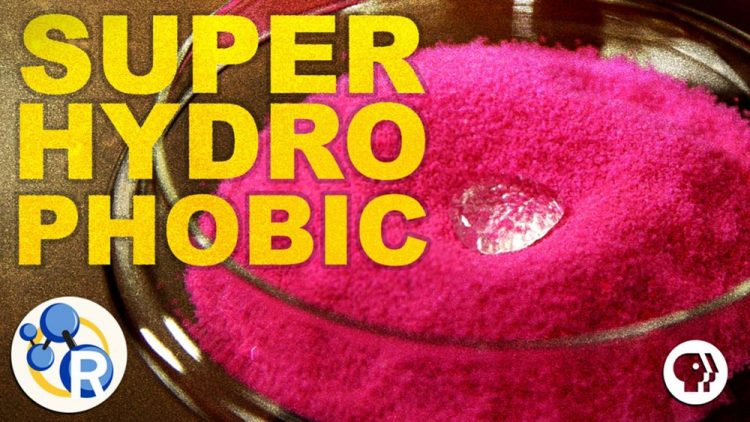How superhydrophobic materials stay totally dry

Raincoats, car windshields, waterproof phones: They all use a little chemistry to stay dry. Inspired by nature, chemists use extremely water-fearing, or superhydrophobic, coatings to repel water from surfaces to keep them dry. Watch as the Reactions team uses a high-speed camera and some brave volunteers to bring the science of staying dry to life: https://youtu.be/YR4uCvy7wOA. Credit: The American Chemical Society
Raincoats, car windshields, waterproof phones: They all use a little chemistry to stay dry. Inspired by nature, chemists use extremely water-fearing, or superhydrophobic, coatings to repel water from surfaces to keep them dry. Watch as the Reactions team uses a high-speed camera and some brave volunteers to bring the science of staying dry to life: https:/
###
Reactions is a video series produced by the American Chemical Society and PBS Digital Studios. Subscribe to Reactions at http://bit.
The American Chemical Society, the world's largest scientific society, is a not-for-profit organization chartered by the U.S. Congress. ACS is a global leader in providing access to chemistry-related information and research through its multiple databases, peer-reviewed journals and scientific conferences. ACS does not conduct research, but publishes and publicizes peer-reviewed scientific studies. Its main offices are in Washington, D.C., and Columbus, Ohio.
To automatically receive press releases from the American Chemical Society, contact newsroom@acs.org.
Media Contact
All latest news from the category: Materials Sciences
Materials management deals with the research, development, manufacturing and processing of raw and industrial materials. Key aspects here are biological and medical issues, which play an increasingly important role in this field.
innovations-report offers in-depth articles related to the development and application of materials and the structure and properties of new materials.
Newest articles

First-of-its-kind study uses remote sensing to monitor plastic debris in rivers and lakes
Remote sensing creates a cost-effective solution to monitoring plastic pollution. A first-of-its-kind study from researchers at the University of Minnesota Twin Cities shows how remote sensing can help monitor and…

Laser-based artificial neuron mimics nerve cell functions at lightning speed
With a processing speed a billion times faster than nature, chip-based laser neuron could help advance AI tasks such as pattern recognition and sequence prediction. Researchers have developed a laser-based…

Optimising the processing of plastic waste
Just one look in the yellow bin reveals a colourful jumble of different types of plastic. However, the purer and more uniform plastic waste is, the easier it is to…



